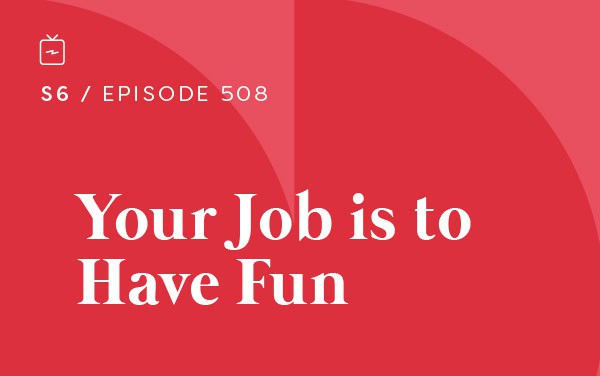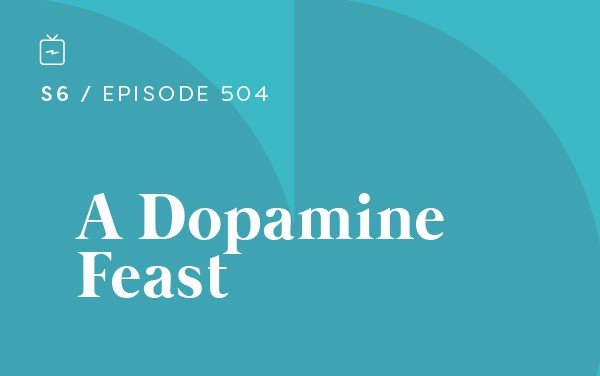
by Kris Oyen | Nov 18, 2024 | Podcast
Podcast: Play in new window | Download
Subscribe to the Recovery Elevator Podcast Apple Podcasts | | More
Episode 509 – It’s a Sobriety Problem
Today we have Nicole. She is 46 years old from Fairfax, VA. She took her last drink on May 18th, 2023.
If you are seeking community on your alcohol-free journey, Café RE is just the place. We have been off Facebook for over a month, and we love our new home. In addition, we are also a non-profit. We would love to see you there!
Restore – registration opens Monday December 2nd. This is Recovery Elevator’s most intensive AF course for someone looking for extra accountability for Dry January.
Sponsors for this episode:
Better Help – code ELEVATOR for 10% off of your first month
[03:32] Thoughts from Paul:
Paul is always saving lines or notes that he would like to use in future podcasts. Today he reads a bunch of those that haven’t quite found a home yet. This includes random stats, some of the consequences of drinking, how alcohol affects us, and that connection is an important component in our lives regardless of addiction status.
[09:02] Paul introduces Nicole:
Nicole lives in northern Virginia with her partner. They have three cats, one dog and three horses. Nicole and her partner both participate in dressage and eventing. She enjoys running marathons.
Nicole says she did not start drinking when she was young. When she was in her late teens she started a 12 year long modeling career. Due to the weight restrictions around her modeling contract, she says she could not afford the calories from alcohol.
Her drinking began when she was in grad school in her 30s. She began casually drinking with some friends and was always a little leery of alcohol with an unexplainable concern that she might develop a problem but ignored it. COVID definitely had an impact on her. Around that time, she was also going through a divorce and her father had developed some chronic health issues.
Nicole feels she had control of her drinking for five to seven years and reflects that it’s like you have control of it until you don’t. She says she wasn’t the type to drink to excess which allowed her to compare herself to others and believed she didn’t have a problem. Ignoring the red flags in her drinking habits, it was when Nicole caught herself shaking while trying to sign in to a work conference that she realized she was having consequences. Because she minored in addiction studies, she feels that knowledge pushed her to observe herself and her drinking.
Nicole decided to try to cut back on her drinking like she did with smoking. She was not able to successfully do it. She was beginning to realize she had to drink even when she didn’t want to. Nicole started looking into outpatient rehab and no one would take her because she was having shakes. She reluctantly went to inpatient rehab with the plan of staying for one week. Nicole ended up doing the full 30 days after realizing she could not do this alone. She uses Vivitrol (Naltrexone) and is a proponent of medical treatment for addictions.
Nicole didn’t do AA having a hard time wrapping her ideas around it. She chose therapy and SMART recovery. Her background in science has helped her understand possible triggers. She finds having a plan very important to avoid boredom, which she learned is a trigger for her. Nicole feels that the intensity of the coping mechanism needs to match the intensity of the craving.
Nicole’s parting piece of guidance: you are not alone, be pro-choice in your recovery, try to trust yourself a little bit.
[00:00] Outro:
If there is a question that you would like to have Paul answer on the air of the RE podcast, record a voice memo and email it to info@recoveryelevator.com. We will select a coup for Paul to answer on the air.
Recovery Elevator
We took the elevator down; we got to take the stairs back up.
We can do this.
RE merch
Recovery Elevator YouTube
Sobriety Tracker iTunes

by Kris Oyen | Nov 11, 2024 | Podcast
Podcast: Play in new window | Download
Subscribe to the Recovery Elevator Podcast Apple Podcasts | | More
Episode 508 – Your Job is to Have Fun
Today we have Fanny. She is 39 years old and lives in Wilmington, NC. She took her last drink on February 3rd, 2021.
Recovery Elevator is going back to Peru in October 2025. On this 10-night, 11-day trip of a lifetime, we will be hiking the Inca Trail and participating in two service projects. Registration opens January 13th and closes May 30th in order to secure tickets to the Inca Trail.
Sponsors for this episode:
Better Help – code ELEVATOR for 10% off of your first month
Sober Link – $50 off of device using this link
[01:43] Intro:
Better Rhodes recently sent Paul a couple of drinks to sample, and he shares that they were all fantastic. Gone are the days when O’Doul’s was the only alcohol-free option around. Paul says his favorite was Hiyo.
Better Rhodes – code RECOVERYELEVATOR15
[04:05] More thoughts from Paul:
Paul shares an article called Benefits of Play for Adults that shares the importance of being playful as adults. Remember that as a child, you were naturally playful without alcohol. Somewhere along the way we forget how to be playful and then we link alcohol with having fun.
This is great news for healing. Just like some of us have goals to hit a certain amount of steps in our day, you should aim to have at least a certain amount of laughs. Laughter is the best medicine and some of the side effects may be a boost to your immune system, release of endorphins, reduction of stress and anxiety and improvement of mood.
Your job, listeners, is to have fun. The healing pathway will contain challenges, but overall, it cannot be more stressful or boring than when you were drinking. You need to have fun and please don’t take yourself too seriously at any moment on this journey.
[09:48] Paul introduces Fanny:
Fanny has lived in NC most of her life and recently proposed to her fiancé who she plans to marry in March. For her profession, she says it’s all things food. Recipe developer, food writer and content creator. For fun, Fanny enjoys outside activities such as biking, hiking and walking her dogs.
During high school and college, Fanny says she drank like any other college kid and always enjoyed a party. Over time, Fanny found herself using alcohol to push down negativity and some lingering questions about her sexuality.
When Fanny moved to California for a while, she said drinking was fun again. She says she learned a lot about herself there including that she didn’t want to be an actress, her real passion was food, and she found herself wanting to return to North Carolina.
After moving back, Fanny met someone, and they eventually married. Drinking was a big part of their lifestyle. They moved to Illinois for his job right before the pandemic and found themselves isolated without family and friends. Fanny says the drinking ramped up and there were some incidents that gave her a lot of guilt and shame. They eventually divorced and Fanny moved back to NC.
Fanny started a relationship with a friend from college who expressed their concerns over drinking because their ex had an issue. Fanny assured her that she was not like she was in college. After a two-day bender, it was Fanny’s girlfriend that helped her call her parents and get some help. Fanny was able to find a rehab in Western NC with the help of her therapist.
Fanny says the first few days were tough, but eventually she settled in and became a sponge trying to learn everything about the addiction. Through her rehab she was exposed to several different recovery modalities and found she enjoys Recovery Dharma the most. She really identifies and enjoys the Buddhist perspective on recovery.
Recovery Elevator
We took the elevator down; we got to take the stairs back up.
We can do this.
Café RE – promo code OPPORTUNITY waives the set up fee
RE merch
Recovery Elevator YouTube
Sobriety Tracker iTunes

by Kris Oyen | Oct 14, 2024 | Podcast
Podcast: Play in new window | Download
Subscribe to the Recovery Elevator Podcast Apple Podcasts | | More
Episode 504 – A Dopamine Feast
Today we have Don. He is 44 and lives in Clarkson, MI. He took his last drink on November 15th, 2021.
Sponsors mentioned in this episode:
Better Help – code ELEVATOR
The theme for this podcast is I am Here, I am Whole. What does that mean? It means, that in this moment, the only moment that has ever mattered or ever existed, I choose to be here, and I will view myself as whole.
Please don’t kick the can of wholeness, authenticity and self-love down the road. It has to be now.
[04:22] Thoughts from Paul:
Paul shares that he really enjoyed the book Dopamine Nation by Dr. Anna Lembke, minus one part of it that talks about a dopamine fast as a way to beat an addiction.
A recent NYT article summarizes why Paul doesn’t like the dopamine fast idea. It has to do with the quote that “it’s less about quitting drinking, and more about creating a life that doesn’t require alcohol”. There are many healthier ways to release dopamine, such as hobbies you enjoy, that don’t involve your drug of choice. Trying new things helps us release dopamine as well.
The last paragraph of the article says “consequently, America’s problem isn’t that we’re a bunch of hedonists hooked on capitalism’s dopamine hits, it’s that so many of us aren’t able to get our social, physical and emotional needs met in healthy ways. Instead of a dopamine fast, we need a dopamine feast – one that makes us want experiences we actually like, rather than compulsively responding to craving”.
[08:36] Paul introduces Don:
Don is an anesthesiologist, and he lives in Clarkston, MI. He started enjoying traveling since his mid-30s and has been to 30 countries, five continents and heading to Antarctica at the end of the year. Don is a big fan of sports and roots for the teams out of Detroit.
Alcohol always seemed to have a positive light around it when Don was younger. Whether it was a gathering or party the adults seemed more relaxed, happy and silly. It always seemed like something to look forward to when he got older. Being more of a goody-two-shoes, Don says, he didn’t try alcohol until the summer after school ended. He recalls feeling like he was comfortable in his own skin and his racing thoughts relaxed. Don says he was immediately someone that couldn’t stop drinking once he started.
Don says his 20s were spent in school and would drink heavily maybe once a month. In his 30s after graduating and feeling he achieved all of his goals, he wondered “what’s next?” Don says that alcohol didn’t answer the question, but it prevented him from having to answer it. Don says that he realized he was gay as a young man and never wanted to deal with it. Drinking helped him push that away too.
COVID sped up the inevitable, Don says. Having more time off work due to less surgeries being performed; Don would start drinking more on his off days. Once work became busy again, he’s drinking continued where it was and started affecting his work.
When Don arrived at work still drunk after a Labor Day weekend binge, he says receiving a call from his boss was relief.
When Don started rehab, he knew he was going to need to address being gay in addition to having a drinking problem. After completing rehab, Don began attending a program for health professionals that gives him the accountability he needed.
Don says AA is a big part of his life now. He says he enjoys the community and accountability. He is testing out dating to see if it’s something that he wants to do. After falling in love with Costa Rica, he decided to build a house there. The greatest gift Don says he was given in sobriety is the ability to be present.
Don’s parting piece of guidance: Just start. You’ve got to start somewhere and if that’s rehab, than so be it. Take a break from your job, people will be much more supportive than you think they will.
Recovery Elevator
You took the elevator down, got to take the stairs back up.
I love you guys.
RE on Instagram
RE merch
Recovery Elevator YouTube
Sobriety Tracker iTunes
by Paul Churchill | Sep 20, 2024
Here’s what you can expect in this alcohol-free song writing course Registration OPENS Monday, January 19th, 2026 Course dates are: Monday, February 9th @ 8:00 PM EST Monday, February 16th @ 8:00 PM EST Monday, February 23rd @ 8:00 PM EST Monday,...

by Kris Oyen | Sep 16, 2024 | Podcast
Podcast: Play in new window | Download
Subscribe to the Recovery Elevator Podcast Apple Podcasts | | More
Episode 500 – I Am Here, I Am Whole
Today we have Brady. He is 43 years old from Denver, CO and took his last drink on July 18th, 2023.
Whatever day you are on, we want to hear it, see it and support you. On Sundays, head on over to RE on Instagram and post on our Roll Call. Let the world know where you are at.
There are still a few spots open on our next Alcohol-Free travel trip to Vietnam. This upcoming January 9th-20th, 2025, we’re heading to this incredible Southeast Asia paradise for 10 days and 11 nights with 25 travelers who are done nursing hangovers.
Starting Monday September 16th, all new registration for Café RE will be added to our community, which is no longer on Facebook. We have found a place that allows us to make these connections better. Beginning October 1st, all current members will start shifting over there as well.
Sponsors mentioned in this episode:
Better Help – code ELEVATOR
[03:57] Thoughts from Paul:
For 500 straight Mondays, Recovery Elevator has released an episode with someone sharing how they quit drinking. We do this to help, to serve, and also selfishly since Paul and all members of the team are also on this AF journey.
Paul started this podcast in 2015 and just celebrated 10 years since his last drink. He shares how he started the Recovery Elevator Sobriety Tracker. He also shares that since starting, we now have Café RE, have done five international sober travel trips, have had 15 official RE retreats, and over 1500 people have signed up for our courses.
Paul shares what he is most happy about are the gains in his personal life. He is married and has a three-month-old son and is well into a creating a life that no longer requires alcohol.
The lyrics to the new intro song: “I am here, I am whole” remind us that there is nothing wrong with us, we are not fractured, and we can correct the imbalance in our lives. And we don’t have to do it alone.
[11:00] Paul introduces Brady:
At the time of recording, Brady just celebrated one year alcohol free!
Paul and Brady have been friends for a very long time, and both acknowledge that it’s good be on the other side of their drinking times to now sharing sobriety with one another.
Brady and lives in the suburbs of Denver, he is 43 years old and is a realtor and formerly a high school teacher. Brady is married and they have a five-year-old son.
Brady says he drank more than the average high school student. He thinks his drinking in college was on par with normal for that time of life. It wasn’t until his late thirties that he started to realize that his relationship with alcohol wasn’t good. He feels that the time during COVID just normalized drinking at home for him. It became an everyday thing, and he slowly stopped having any interest in anything other than drinking.
An acute panic attack one night found him feeling empty. When he talked to his mom about it, she asked if he had been drinking. It was then that he started to connect the dots and was on the road to exploring the role alcohol had in his life. He never considered himself an alcoholic, but knew he was not living the life he wanted to.
Since quitting drinking, Brady has lost 20 pounds, is says he is more aware of what he is doing and it’s more purposeful. Brady has discovered that everything is clearer now. He mentions listening to The Huberman Lab podcast about alcohol really helped him in addition to Alan Carr’s book about quitting drinking. Learning what alcohol really does to us has been an important tool for Brady. He has not attended AA but had a lot of support from people around him and was comfortable sharing with them. Brady has shifted his identity to no longer being a dude that drinks.
Brady’s parting piece of guidance: just do it, find those resources that will help you.
Recovery Elevator
You took the elevator down, you got to take the stairs back up.
We can do this.






